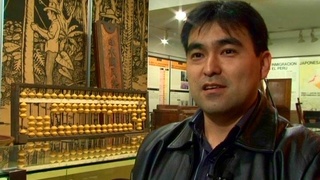Interviews
Okinawan cultural appreciation
I didn’t know I was Okinawan, actually until maybe I was in fifth or sixth grade. So I was just like, “yeah, I’m Japanese.” And I remember going to Japanese school and being like, your eyes are bigger, your arms are hairier, you’re darker, why is that? Is it cause you’re Peruvian? – Even though Okinawan through-and-through.
So I think my parents heard a lot of that and knew that I was internalizing a lot of that and so we watched a Japanese drama called Chura-san and it’s about this Okinawan girl that comes from Okinawa and moves to Tokyo and it’s a coming of age story for her and it has so many major Okinawan things like goya, which is the bitter melon, it talks about Sanshin and the music of Okinawa which is so big and the odori of Okinawa.
And so I saw that and that made me really understand, oh there’s a difference between being between what prefecture you’re from, even in Japan. And so after seeing that I got involved with Okinawa Association of America and then did odori and did taiko and all these things and just being surrounded by Okinawan culture and Okinawan folks who knew so much more about the culture. I think that’s really what made me understand, oh there are these subtle differences, these big differences and it made me appreciate it so much more. As I’ve grown up and you see more like dango or andagi at different obons…that’s my culture right there.
Date: August 30, 2018
Location: California, US
Interviewer: Sharon Yamato
Contributed by: Watase Media Arts Center, Japanese American National Museum









